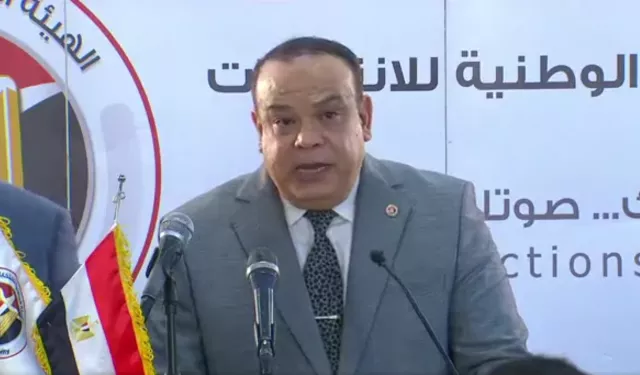The National Elections Authority held an emergency press conference Monday saying it is reviewing all complaints and challenges filed by candidates, voters and observers—following an earlier call by President Abdel Fattah El-Sisi to review complaints, even at risk of annulment.
In a Facebook statement earlier Monday, El-Sisi said he had been informed of “events” in multiple constituencies, stressing that only the NEA has the authority to assess and rule on such matters.
El-Sisi urged the NEA to conduct full investigations into incidents in constituencies where individual-seat candidates competed, calling for the cancellation of the first phase if authorities “failed to reach the true will of the voters.”
At the press conference, the NEA said it had received 88 challenges, stressing it would take “the correct decision within the framework of the law,” even if that means nullifying the entire first phase or striking results in specific constituencies.
The authority added it had documented all violations related to campaign advertising and would announce its decisions at the same time as first-round results. It said the NEA board has remained in continuous session, working under heightened scrutiny as allegations of misconduct continue to surface.
The press conference grew tense as attendees objected to releasing results before the challenges were examined, pointing to serious violations in several polling stations.
In his morning statement, El-Sisi insisted that the NEA must not hesitate to take “the correct decision,” whether by cancelling the entire phase or annulling specific constituencies, with reruns to follow.
He also requested that the NEA publish details of the steps taken to address campaign-advertising violations “to ensure effective oversight” and prevent future breaches.
NEA chief Hazem Badawi confirmed in the later press conference that “any violation occurring in any sub-committee will result in the complete annulment of that committee’s votes,” and emphasized that the electoral timetable would remain unchanged.
Badawi added there was no deadline for filing challenges, and that the NEA’s full membership would continue reviewing them up until the announcement of results on Tuesday.
The NEA said it will release its complaint findings alongside the results of the first round of parliamentary elections on Tuesday without delay, despite mounting public pressure to halt the process.
El-Sisi's intervention—issued just one day before results are due—intensified political pressure on an already contested process.
The first phase opened in Imbaba with the withdrawal of former MP Nashwa El-Deeb just one hour after polls began. She said she was protesting what she described as the absence of integrity and transparency, claiming seats had been predetermined. Her withdrawal echoed widespread fears that the process was compromised from the outset.
The phase closed with an appeal for help from Ahmad Fathi Abdel Karim in Montaza district of Alexandria, who said he found several ballot boxes opened and emptied of voting papers, suggesting tampering.
Al Manassa field reporting in Giza documented multiple election irregularities, including the bussing of voters and the use of manufactured queues in districts like Boulaq al-Dakrour and Dokki.
Al Manassa reporters also witnessed coercive practices where young people were forced to remain at polling sites and were unable to leave after security personnel confiscated their national ID cards.
Furthermore, reporters observed direct evidence of transactional voting, as voters were seen receiving cash payments at independent candidates’ campaign headquarters in exchange for their ballots.
Runoffs for Egyptians abroad are scheduled for Dec. 1–2 and for domestic voters on Dec. 3–4.
The second phase begins abroad on Nov. 21–22 and inside Egypt on Nov. 24–25, covering Cairo, Qalyubiya, Daqahliya, Monufiya, Gharbiya, Kafr El-Sheikh, Sharqiya, Damietta, Port Said, Ismailia, Suez, North Sinai and South Sinai. Runoffs will take place abroad on Dec. 15–16 and inside Egypt on Dec. 17–18.
Under Egyptian law, the House of Representatives consists of 568 elected members—284 through individual seats and 284 through party lists. The president may appoint up to 5 percent of members (28 MPs), bringing the total to 596. Final results are expected in late December.
